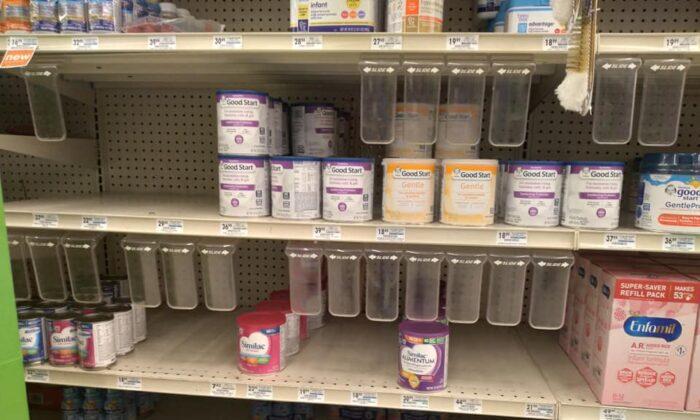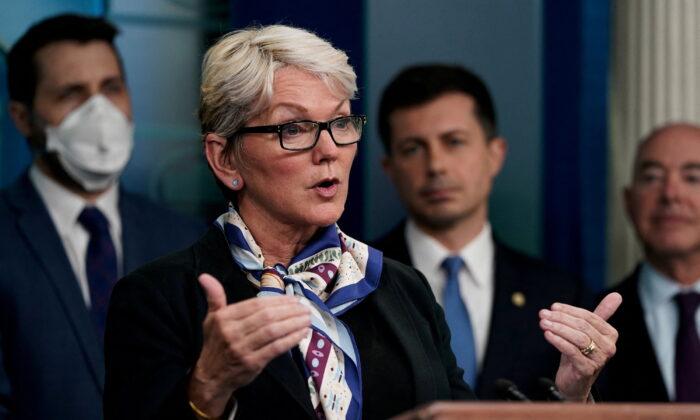Eight Democrat senators have written a letter to the Secretary of the United States Department of Agriculture (USDA) Thomas J. Vilsack asking him to tackle the baby formula industry’s “alarming level of corporate concentration” amid a shortage of the product.
Four companies, Abbott Nutrition, Mead Johnson, Gerber, and Perrigo, control almost 90 percent of the infant formula market. Abbott Nutrition, whose recall of some of its products has led to the shortage, alone controls around 40 percent of the market.
In February, Abbott Nutrition issued a recall of infant formula products like Similac, Alimentum, etc., that were manufactured at its Sturgis plant in Michigan. The recall was issued after four infants who consumed products manufactured at the plant were hospitalized due to infections from Cronobacter sakazakii bacteria, with two of them ending up dead.
In the first week of May, 43 percent of baby formula supplies were out of stock across American stores. The United States manufactures 98 percent of the infant formula it consumes.
Around 50 to 66 percent of all infant formula sold in the country is bought through WIC. In the past three decades, WIC has awarded contracts for sourcing infant formula to just three companies: Abbott Nutrition, Mead Johnson, and Gerber. At present, Abbott is the sole-source WIC provider in 23 states and the District of Columbia.
Moreover, once WIC awards a contract to any company, the brand then gets a boost in non-WIC purchases in that specific state. For instance, when California ended its contract with Abbott and gave it to Mead Johnson in 2007, Abbott’s share of the market in the state went from 90 percent to 5 percent while that of Mead Johnson rose from 5 to 95 percent.
The letter acknowledges that the sole-source contract model has enabled “cost containment and the ability to serve more WIC participants.” However, the sole-source contract model might be contributing to the concentration in the market, it added.
“Under normal circumstances, this does not pose any immediate threats to the ability of families to provide nutrition to their babies and infants, but in the midst of a shock to the supply chain, it is clear that the current level of concentration has created a fragile system unable to meet the needs of vulnerable consumers,” the letter stated.
“This may merit exploring new ways to bolster competition in the market and ensure formula access for WIC participants, including the possibility of multi-source contracts.”
“Abbott has been working with the USDA and WIC agencies and paying rebates on competitive products in states where Abbott holds the WIC contract when Similac is not available. Abbott will continue to pay rebates for competitive products through Aug. 31,” the company said.
“This means program participants will continue to be able to obtain formula, free of charge whether it is Similac or formula from another manufacturer.”





